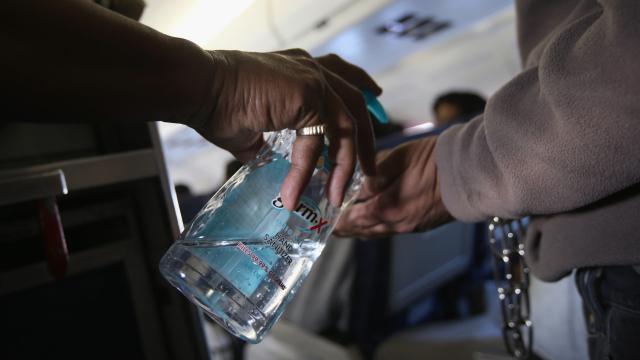Hand sanitiser is a constant presence in modern life, from your purse to your office desk to the automatic dispensers in airports and classrooms. Now the US Food and Drug Administration says that it’s looking for data on the safety and efficacy of these products.
Image: Getty
The WSJ reports that the FDA has proposed a rule change whereby it would require hand sanitiser manufacturers to disclose data about how safe their products really are, especially when used daily. The agency also wants to know how much of the product is ultimately absorbed into the bloodstream, and more about the long term effects of daily use, especially for children and pregnant women. Manufacturers have 180 days to comment on the proposed call for safety data, and a year to submit evidence about safety and efficacy concerns.
Nearly all consumer hand sanitisers use ethanol or ethyl alcohol as their active ingredient. Others use isopropyl alchohol or benzalkonium chloride (a common antimicrobial compound).
Use of hand sanitisers has become widespread since the FDA first started reviewing “topical antiseptics” in the 1970s. Hand sanitiser isn’t necessarily more effective than washing with soap and water, and the US Centres for Disease Control and Prevention advises using it when soap and water isn’t available.
Indeed, sanitiser use has become widespread that it’s definitely time for a more rigorous investigation into how safe the goop is and whether it even works.
